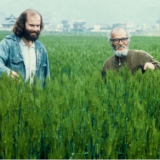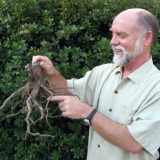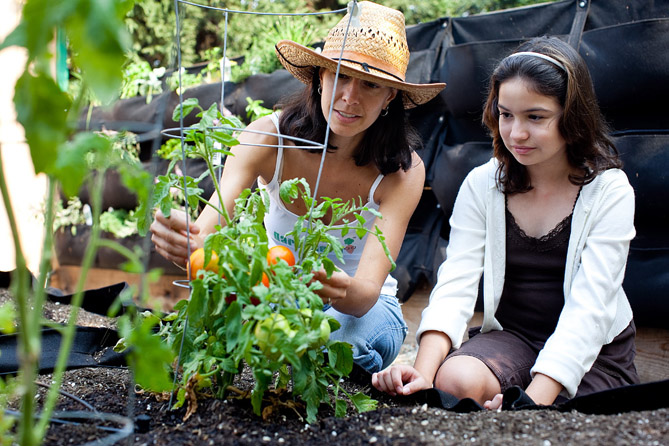
Our topic this week is gardening myths and our guest is Robert Pavlis. We touch on a number of controversial, hot-button gardening topics such as synthetic fertilizers, roundup and compost tea. Robert maintains a six acre garden near Guelph, Ontario all by himself, he’s a master gardener and a speaker. He has a background in chemistry and biochemistry and runs two blogs: gardenmyths.com and gardenfundamentals.com.
During the show we also discuss the “whys” of gardening, mosquito prevention, stuff you shouldn’t buy and the problems with fish fertilizer.
If you’d like to leave a question for the Root Simple Podcast please call (213) 537-2591 or send an email to [email protected]. You can subscribe to our podcast in the iTunes store and on Stitcher. The theme music is by Dr. Frankenstein. A downloadable version of this podcast is here.






wow, fantastic post. Now i feel bad for haranguing my neighbor for using Round Up!
there are studies done that round up distroyes the immunity of the plant so it dries out and effect our gut flora the same way, it messes up with humans, that is sientific for me, i read the study, im just not getting what reasrch is not seening…
it gives me headache, it smells very bad when it is sprayed, what a joke!! i wish to write this in my native language ;o) there would be perfect grammar!!!!
Enjoyed listening to this podcast. It was very informative. Talking about the compost tea, it reminded me of a YouTube post from Alberta urban garden. He tested this method. With similar conclusion as your guest this week.
This was an interesting and thought-provoking interview.
It all comes down to context. Are we talking about RoundUp in the context of spraying on a few local plants or spraying industrial fields and contributing to weed resistance? Those are two rather different discussions and you can’t just ignore the second one just because the first is pretty benign.
Facts. My issue with facts is that they seem to be rather a moving target for something that is supposed to be a basis of knowledge. My health as a young person suffered from the low-fat diet of the 80s and 90s. That was supposed to be science-based. Whoops. Sure, science has caught up to science…sort of…
Read a “study” the other day that when people go through periods of losing a lot of weight their metabolisms supposedly slow down so much they gain it all back, making permanent weight loss an impossible task. OK, I’ve lost over 50 pounds and kept it off over seven years. I’m not alone. So, how about we study what changes people have made to be able to take weight off and keep it off without extreme measures.
In the end, I am smart enough to know that a fact is not a fact is not a fact. Science hasn’t figured everything out. It is an important tool, but it is just one tool.
This is a little off point, but speaking of diet and science, I found this CBC program on the recent history of nutrition science, the low fat movement, etc. really interesting (and reassuring in that I really like full fat dairy!) — you might find it interesting, too: http://www.cbc.ca/radio/ideas/fat-and-sugar-part-1-1.3635209